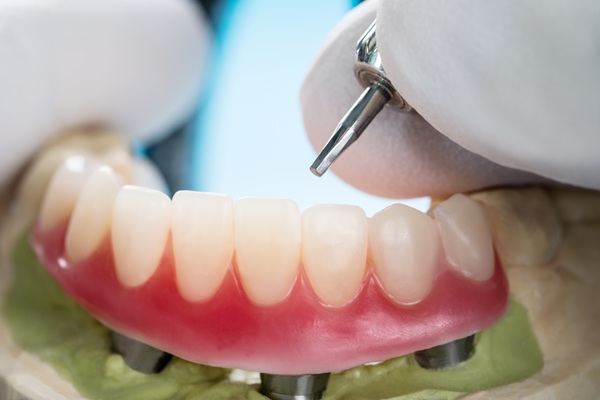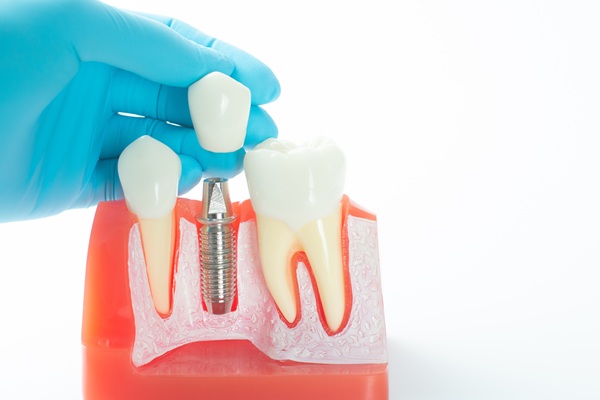3 Common Types of Jaw Pain Treatment

Jaw pain treatment ranges from preventative measures to surgical treatments. Different treatments target different conditions and disorders of the jaw. Whether you are suffering from a short-term or chronic condition, the information that follows will be helpful.
Common conditions that require jaw pain treatment
Chronic jaw pain could happen because of injury, disk slippage, nerve problems, or disorders of the temporomandibular joints. Jaw pain can also have root causes like tooth pain, cluster headaches, and sinusitis.
The underlying cause of jaw pain determines the course of treatment that an oral surgeon will recommend. Jaw pain with chronic issues at its root lends itself to therapies that manage symptoms like discomfort. Acute causes are easy to treat with one-off treatment plans that take anywhere from a few weeks to a few months to complete. Here are three common types of jaw pain treatment that oral surgeons can administer.
1. Preventative and therapeutic measures
This is a course of action that relieves and slowly corrects chronic root causes of jaw pain. For example, a patient with TMJ disorder will suffer from jaw clenching and teeth grinding. An oral surgeon will provide relief for such patients by:
- Prescribing a custom nightguard to prevent teeth grinding
- Recommending stress-relief measures for people who grind their teeth because of stress
- Recommending physiotherapy to relax the jaw muscles and improve the jaw’s range of motion
- Prescribing pain medication in the short term
Oral surgeons use preventative and therapeutic treatments as a conservative course of overall treatment. They will choose such a treatment plan when there seems to be little evidence of a jaw malformation.
2. BOTOX®
BOTOX is a paralytic that relaxes the jaw muscles, which prevents them from clenching and causing jaw pain. This is a much more effective alternative to a nightguard. For starters, the effect of BOTOX works day and night. After all, it is hard to get through the day with an appliance in the mouth. Also, protective devices cannot prevent jaw muscles from clenching. The effects of BOTOX can last a few months, providing relief for long stretches.
3. Jaw surgery
This is an intensive option that oral surgeons recommend as a last resort. They can use jaw surgery to correct the following conditions:
- A jaw deformity
- Injury to the jaw
- A slipped disk in the joints that connect the jaw and the skull
- Injury or pinching of a nerve in the face
Advances in medicine allow for minimally invasive surgical treatments, some of which are doable on an out-patient basis. Jaw surgery can be a standalone treatment, or it can be part of a larger treatment plan. In the case of a jaw malformation, surgery will usually precede orthodontic treatment. The pain typically goes away when root causes like sinusitis, infection, and cluster headaches are treated.
We can work with you toward a pain-free reality
Jaw pain treatment requires an oral surgeon with the experience and insight to provide effective treatment in the long term. Our practice has many patients who are enjoying improvements in their daily lives. Get in touch with us and make an appointment.
Request an appointment here: https://corderoperiodontics.com or call Rafael E. Cordero, DDS PA at (561) 763-9221 for an appointment in our Palm Beach Gardens office.
Check out what others are saying about our services on Yelp: Read our Yelp reviews.
Recent Posts
Implant-supported dentures often appeal to patients who feel frustrated by loose or uncomfortable traditional dentures. This treatment uses dental implants to securely anchor a custom denture for a solution that looks natural and feels more stable in everyday life. Careful planning from a periodontist or prosthodontist can help determine whether implant-supported dentures or traditional dentures…
Appearance may be one of the first things people think about when it comes to tooth replacement. However, improved appearance is just one of the many benefits of replacing missing teeth. Tooth replacement can be key to improving not only how you feel about your smile but also boosting your oral health.Whether one chooses dentures,…
The jawbone is the part of the face that holds many essential elements together, such as the teeth, ligaments, and muscles; however, bone grafting may sometimes be necessary if the jawbone is too weak to perform these tasks. A person’s jawbone can deteriorate over time, whether due to age, genetics, poor oral health, cancer, or…
A periodontist can help improve gum recession. This is one of the first signs of gum disease. Seeing this dental care provider early can help you target the problem with the necessary treatment. Here are the details on how a periodontist can help fix receding gums.Getting a regular professional dental cleaning can remove the plaque…


